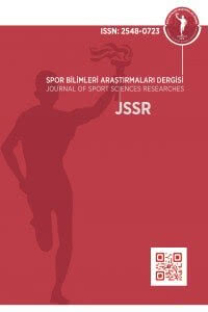Sport, including e-sport, in the light of various interpretations
Sport is a complex, multidimensional social phenomenon in the dynamically changing communities as well as one of the elements of physical culture seen as a specific field of culture in a selective and global understanding. In the recent years, there has been a growth of the meaning of sport in different areas of social life, and in systems associated with values such as ideological, religious or ethical ones. Interest in sport of million receivers both direct and indirect ones on the market of sport goods makes us pause to reflect upon its phenomenon. Questions like: “What is sport?” are not rare. They were asked long time ago, they are asked today and certainly they will be asked in future. Sport is such a complex phenomenon that it hardly undergoes a holistic interpretation. The purpose of the present work of a quality character is an attempt to define the contemporary understanding of the terms “sport” and “athlete” also with reference to e-sports, as representatives of intellectual sport activities. The purpose is also to indicate common areas of the traditionally understood sport and e-sport on the highest level of professionalism. According to traditionally understood sport, intellectual activities such as for example: chess, card games, automatic games or e-sports are not considered sports because of the lack of the most important designate, which is physical activity.
Anahtar Kelimeler:
sport, athlete, e-sport, interpretation
Sport, including e-sport, in the light of various interpretations
Sport is a complex, multidimensional social phenomenon in the dynamically changing communities as well as one of the elements of physical culture seen as a specific field of culture in a selective and global understanding. In the recent years, there has been a growth of the meaning of sport in different areas of social life, and in systems associated with values such as ideological, religious or ethical ones. Interest in sport of million receivers both direct and indirect ones on the market of sport goods makes us pause to reflect upon its phenomenon. Questions like: “What is sport?” are not rare. They were asked long time ago, they are asked today and certainly they will be asked in future. Sport is such a complex phenomenon that it hardly undergoes a holistic interpretation. The purpose of the present work of a quality character is an attempt to define the contemporary understanding of the terms “sport” and “athlete” also with reference to e-sports, as representatives of intellectual sport activities. The purpose is also to indicate common areas of the traditionally understood sport and e-sport on the highest level of professionalism. According to traditionally understood sport, intellectual activities such as for example: chess, card games, automatic games or e-sports are not considered sports because of the lack of the most important designate, which is physical activity.
Keywords:
sport, athlete, e-sport, interpretation,
___
- Coakley, Jay J. (1982). Sport in society. Issues and controversies. St. Luis – Toronto – London: The C.V. Mosby Company.
- Demel, M., Skład, A. (1970). Teoria wychowania fizycznego. Warszawa: PWN.
- Gameplanet (19.08.2017): https://gameplanet.onet.pl/artykuly/e-sport-to-takze-nowe-miejsca-pracy-na-przedstawicieli-jakich-zawodow-zapotrzebowanie/g6jf38g].
- Jaworski, Z. (2011). Sport – problem desygnat i definicji. Lider, 242: www.lider.szs.pl/biblioteka/download.php?plik_id=1576&f=artykul_1576.doc [12.07.2017]
- Kosiewicz, J. (2010). O biologicznym i społecznym kontekście kultury fizycznej i sportu. In Kosiewicz, J., Bany, P., Piątkowska, M., Żyśko, J. (Ed.) Nauki społeczne wobec sportu współczesnego. Warszawa: Wydawnictwo BK.
- Krawczyk, Z. (2000). Sport w zmieniającym się społeczeństwie. Warszawa: AWF.
- Lipiec, J. (1999). Aksjologiczne aspekty architektury olimpijskiej. In Lipiec, J. (Ed.) Sport. Olimpizm. Wartości. Kraków: FALL.
- Lipiec, J. (1998). Kalokagatia. Szkice z filozofii sportu. Warszawa, Kraków: PWN.
- Lipoński, W. (1987). Humanistyczna encyklopedia sportu. Warszawa: Sport i Turystyka.
- Michaluk, T., Pezdek, K. (2016). Rozporoszone wydarzenia sportowe. Podmiotowość i cielesność w e-sportach. In Kosiewicz, J., Małolepszy, E., Drozdek – Małolepsza, T. (Ed.) Filozoficzne i społeczne aspekty sportu i turystyki. Częstochowa: AJD, PTNSS.
- Tomecka, M. (2009). Kariery sportowe a kariery zawodowe byłych i czynnych zawodników w hokeju na trawie. Gliwice: UKiP, Gębka&Gębka.
- Wirtualne Media (2017): http://www.wirtualnemedia.pl/artykul/e-sport-w-polsce-rynek-e-sportu-rosnie-najszybciej-w-europie-segment-coraz-wazniejszy-dla-reklamodawcow [20.08.2017].
- ISSN: 2548-0723
- Yayın Aralığı: Yılda 3 Sayı
- Başlangıç: 2016
- Yayıncı: Kadir YILDIZ
Sayıdaki Diğer Makaleler
Sport, including e-sport, in the light of various interpretations
Armağan YARDIMCI, Reşat SADIK, Nurgül TEZCAN KARDAŞ
Construction of Test to Judge Ball Sense Ability of Batsman in Cricket
Educational values of sport and olympism in the opinion of students and undergraduates
Antrenör Yeterlilik Ölçeği II'nin Türkçe Uyarlama Çalışması
Volkan UNUTMAZ, Timuçin GENÇER
An Equity Centered Management Approach to Exploiting Sport Employee Productivity
